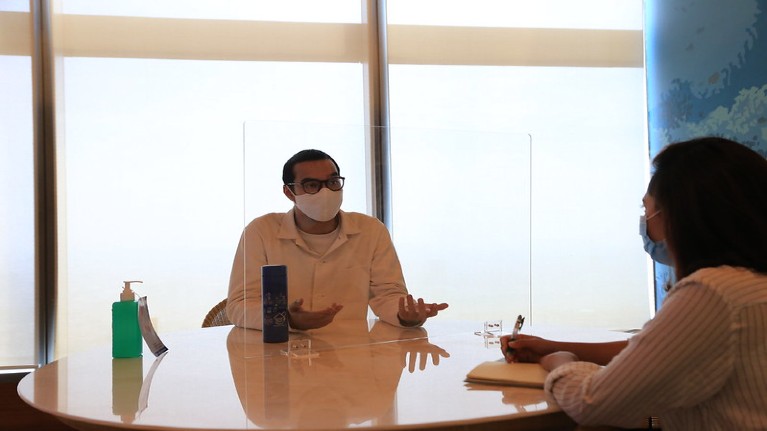Social Dialogue remains vital to build sustainable recovery from COVID-19
A new report by the Bureau for Workers' Activities of the ILO highlights the need for global-scale responses based on effective social dialogue to recover from the COVID-19 crisis.

The Global Trend Analysis on the Role of Trade Unions in Times of COVID-19 reveals that 108 out of 133 countries, or 81 per cent, used social dialogue in response to the pandemic to achieve a consensus on targeted measures to protect workers and enterprises.
The report also shows that at least one form of social dialogue, either tripartite, bipartite or both, was used in 100 per cent of the countries under examination in the Arab States, in 88 per cent of the Asian and Pacific countries, by 84 per cent of the countries in Europe and Central Asia, in 77 per cent of the African countries and in 76 per cent of the countries in the Americas.
“We are living in an unprecedented time of crisis. But one thing is evident: we need to reinforce social dialogue to ensure a lasting, sustainable and inclusive recovery, where no one is left behind. Strong, independent, knowledgeable and representative trade unions as well as global solidarity are more relevant than ever for achieving the future that we want ”, says Maria Helena ANDRE, Director of ACTRAV.
Impact on Unionization
According to the report, unionization by workers’ organizations has been severely affected by lockdowns and restrictive measures. In light of this, some trade unions decided to discontinue the collection of membership dues, while others saw the crisis as an opportunity to raise awareness and reach out to informal economy workers and launched successful membership campaigns. Still others developed innovative ways to organize and reach out to their members, or organized humanitarian actions.The document stresses also an increase of violations of workers and trade union rights across the world as a result of the measures adopted by governments. These violations concern in particular International Labour Standards, non-compliance with labour regulations with regard to layoffs, working hours and the payment of wages and a disregard of Occupational Safety and Health (OSH) regulations.
As key actors of the world of work, trade unions also made several recommendations to governments and employers’ organizations. Their requests for immediate action included universal health care, extended sickness, unemployment and family benefits, cash transfers, job and income security, financial support to enterprises, compliance with OSH regulations, the provision of in-kind benefits and the recognition of COVID-19 as an employment injury.
Medium/long-term recommendations included strengthening social dialogue, extending social protection coverage, making long-term investments in social and welfare services and the partial or total forgiveness of debts.
Recommendations
The report calls upon trade unions to ensure that the temporary measures adopted in response to the COVID-19 pandemic are a stepping-stone toward a sound recovery focusing on a medium to long-term perspective in line with the priorities identified in the ILO’s policy framework for responding to the COVID-19 crisis.Trade unions should regard the crisis as a wake-up call for contributing towards better and more inclusive labour and social agendas. They continue to play an important role as vehicles of democracy and advocates of social justice.
In addition, Trade unions’ agenda for resilience and empowerment should aim to: build political will, contribute to strengthening social dialogue mechanisms, build knowledge and capacity, increase representative capacity, continue to promote workers’ priorities, provide new services, expand partnerships, engage with the UN processes on sustainable development, share information and learn from previous crises.